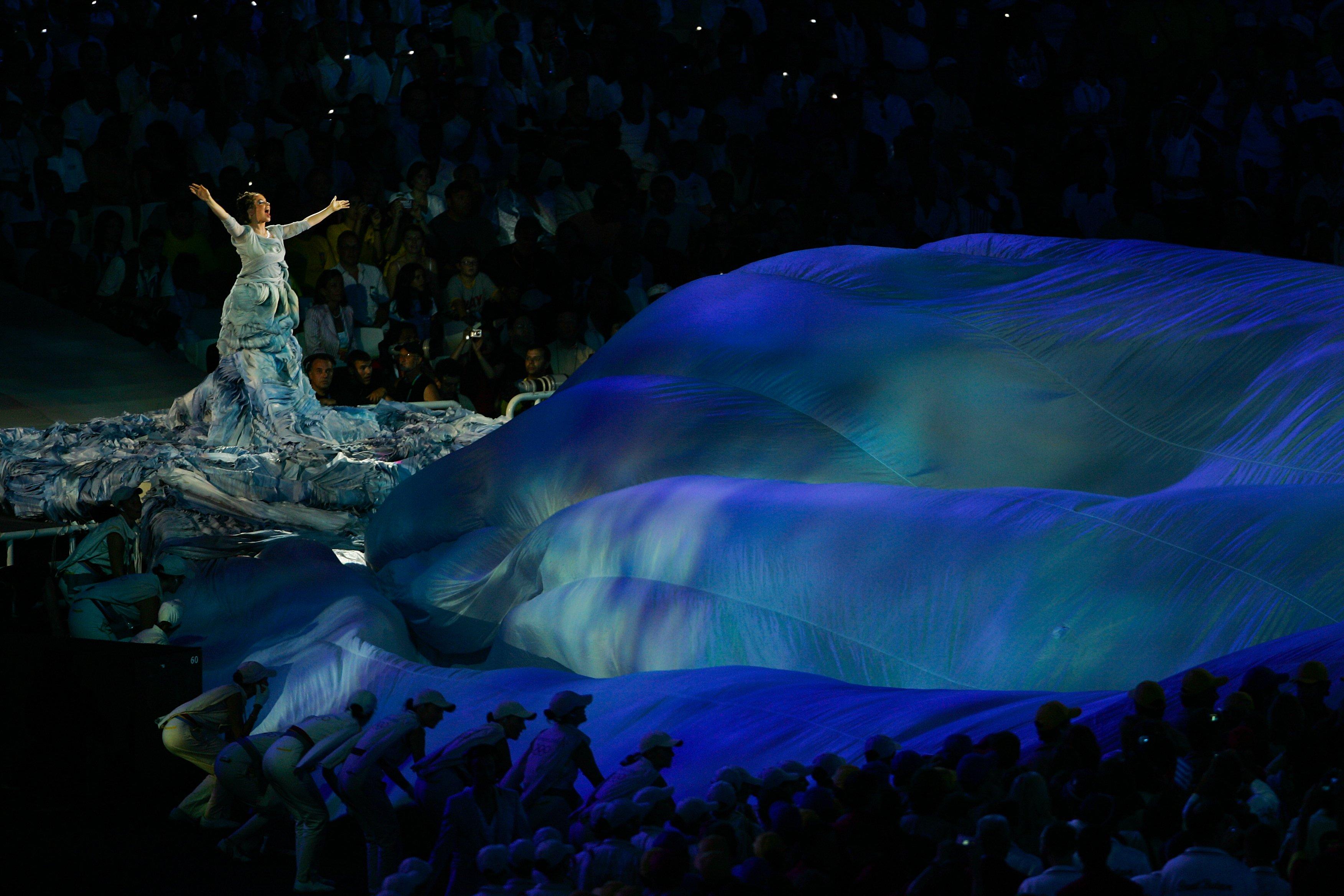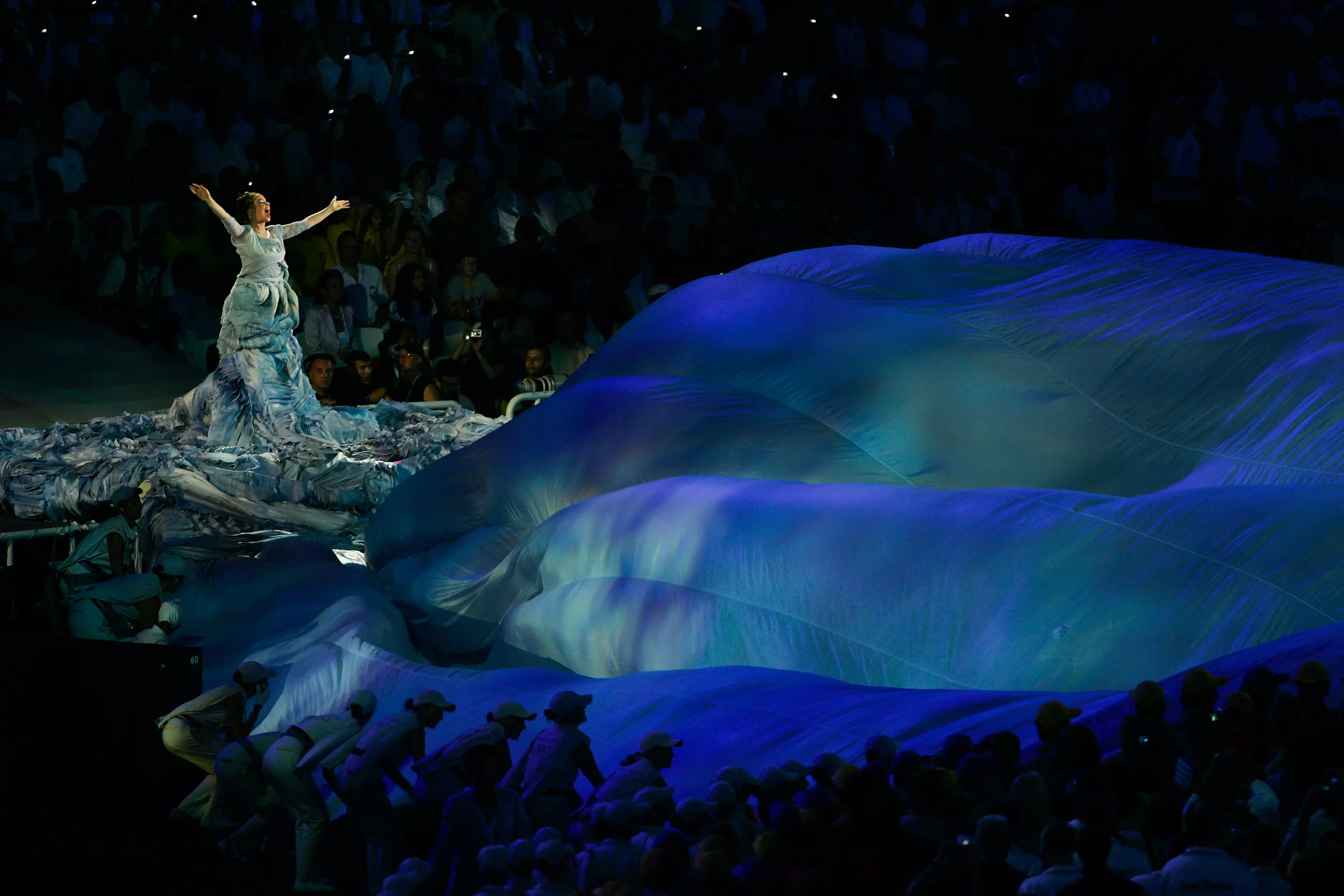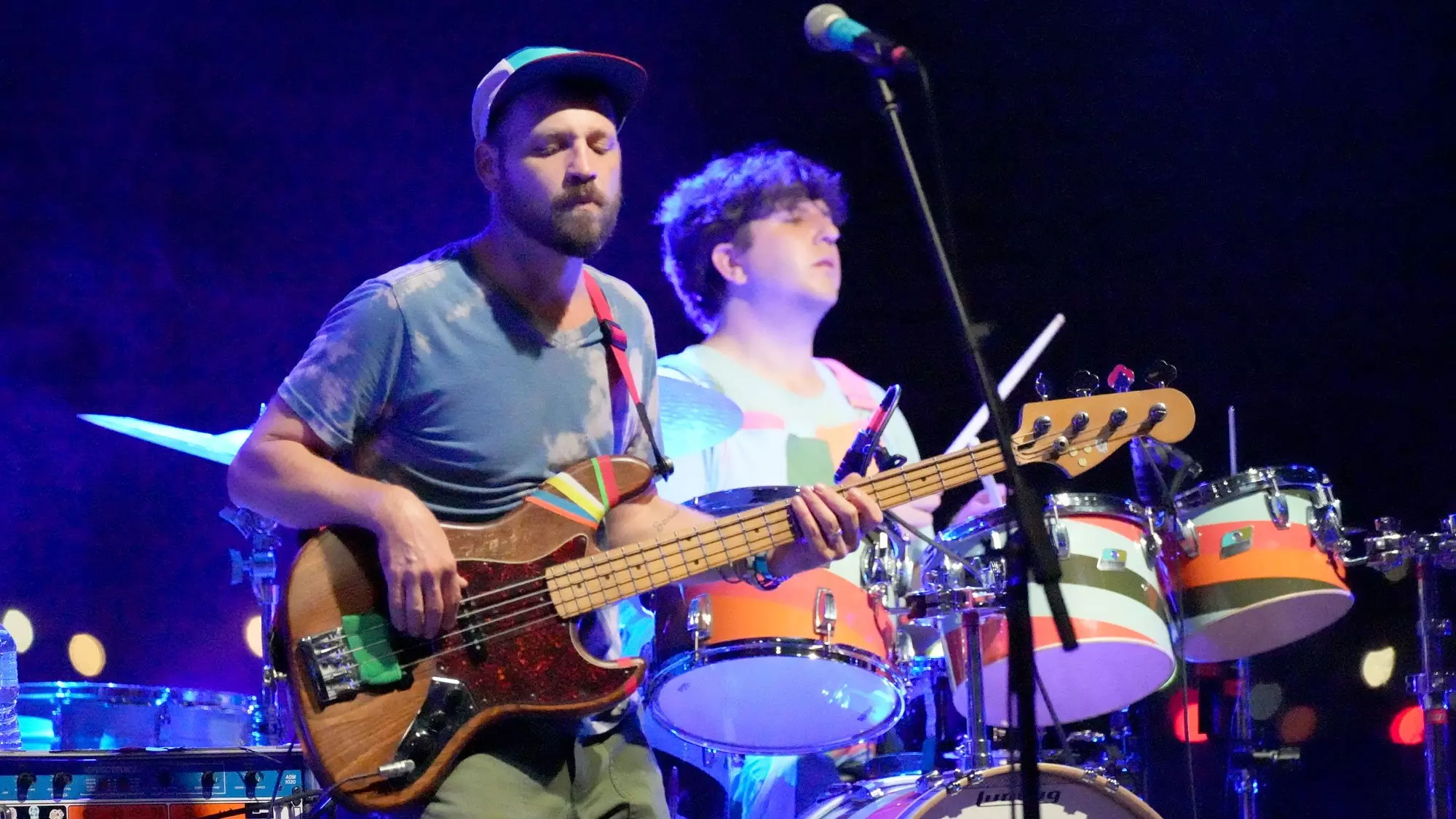Those who follow underground Spanish music have known the name Nathy Peluso for a while, but in 2020 the Argentine-Spanish artist came to the attention of a broader audience. That year, the rapper and singer released her official debut album Calambre, which won a Latin GRAMMY for Best Alternative Album and received a GRAMMY nomination for Best Latin Rock or Alternative Album in 2021.
Four years later, Peluso is back with Grasa [Grease]. Out May 24, the 16 track follow-up is simultaneously bolder, more vulnerable and more revealing than its predecessor, crystalizing the artist's iconoclastic and often cinema-inspired vision.
At Legacy Records, a hotspot for haute Mediterranean fare in Manhattan's Hudson Yards neighborhood, Nathy is draped in an oversized blazer and pants. She looks like a relaxed, elegant CEO and the style becomes her, especially as she balances it with ultra-feminine touches. Today, its long nails tipped in fire-engine red.
Her fashion choices are as pointed as her manicure, on and off stage. In the recent video for "Aprender a Amar," she raps ferociously into a mirror, sharply dressed in a pin-stripe tie, a jacket with exaggerated shoulders, and delicate black lace gloves. These sartorial choices ask, Why settle for a mob-wife aesthetic when you can be a don yourself?
Both visually and aurally, Nathy Peluso is part cinematic diva and part underworld kingpin, with a fair amount of Missy Elliott swagger. Her tough, independent persona was on full display on her now-multimillion streamed 2020 Bizarrap session, which smoldered and crackled with her bombast. It was fully formed on "Business Woman," from Calambre, and returned with a roar on her 2021 single "Mafiosa," a high drama salsa track.
Her powerful energy is pure hip-hop in steel-toe Timbs, but she performs with the generous spirit of a burgeoning pop star ministering to a big house of fans. On Grasa, Nathy Peluso brings humanity to her braggadocio. This doesn’t stop her from picking up the mafia saga where she left off on Calambre. The opening track is titled "Corleone."
Ahead of the release of her first album in four years, Nathy Peluso spoke with GRAMMY.com about overcoming creative burnout, taking inspiration from mob movies, and the true meaning of "grasa."
This album is more personal than your previous releases. What led you to open up more lyrically?
I think it just happened because I am growing. I am learning and I need to tell my truth. The way for me to do that is music. It’s been four years, but, when the moment came, I was ready.
Speaking of four years ago, 2020 was a very big year for you. A lot happened. What are your most vivid memories from that time?
Calambre was the moment. It was really special for me. Winning the GRAMMY was the moment, and then touring with that album was an amazing learning experience for me. I grew up on the stage.
I grew up as a woman, as an artist, as a performer, maybe as a lover too. You are traveling around the world with so much pressure. Physically, it was a difficult show. I was alone on stage, with my musicians, but no dancers. It was a challenge.
I grew up in so many ways, but when I finished that tour I was broken. My soul was broken. I was empty. I started looking for myself. It was very tough.
It sounds like you were experiencing creative burnout.
Yes, my brain was broken, but it was necessary in order to start again. I did an album then, but I decided not to go with that album and to start again. So, it was a very long path.
You wrote a whole album and then discarded it? What wasn’t working about it?
It was working, but it wasn’t the feelings I wanted to share and the music I wanted to share. Sometimes there are projects whose purpose is just to learn from. It was a process of learning for me. That was a very special moment.
You start feeling like a failure, but no. It was necessary to go through that to get to Grasa. The things I learned were exactly the things I needed to know to then make this music.
So, how did you overcome this period of burnout and get to the point where you were feeling creative again?
A lot of therapy. A lot of working on my s— and confronting it.
Is there one song on Grasa that is more intense to perform, or more emotional for you than the others?
"Envidia" is talking real s—. Things happen around you and you need to know who you are and what your intention is. You have to be focused on what you want to bring to the world and not care about anything besides your craft. People are going to talk. Things are going to be crazy. You’ve got to know your choice, your path.
Can you tell me about the song "Corleone"? How do gangster movies inspire you?
I have a song called "Mafiosa." It’s a character I love to perform and I see myself in that character. It’s relatable. The mafia have codes that represent me — not everything [laughs] — but, you know, the family, the legacy, working hard, respect. That kind of feeling in music, in cinema, is what I was looking for. I love the aesthetic. I love Tarantino. I love Tony Montana, the character. On stage, I feel like him sometimes.
I love for a woman to be that type of character. I think it’s interesting. Usually, those kinds of feelings in music or cinema are represented by men. It’s always that way in salsa. If you look at Celia or Gloria, they were always more romantic. Maybe La Lupe was dangerous. For me, it’s important to bring that energy to the music, like, rude, strong, dangerous. Be careful, bitch!
What were some of your specific musical influences while working on this album?
Always folklore and roots, salsa and bolero, but then I was paying attention to Kendrick Lamar and Kanye West. They are a big inspiration for me.
How do you bridge the gap, or find the connections among your different influences?
I don’t even know. I just do music, really. I go to the studio and I start singing. I just feel it. I go to the studio, and suddenly I want to sing, and I want to cry. And then another day, I feel powerful and I want drama and aggressive stuff. It’s very honest. The starting point is always the way I feel.
Is it important to you to make music that empowers other women?
Yes. For sure. But it wasn’t ever a strategy, like, "I want to do music for empowering women." I just did my music without direction. Then I discovered people were feeling the power and using it. I feel inspired by that, but it wasn’t the point.
What does the word "grasa" mean to you?
I chose that word because it’s the strongest word. It’s dirty. It’s funky. But it’s a word that, at least in Spanish, has a lot of meanings. So, I want people to choose the meaning. After listening to the album, you can choose the meaning and maybe redefine it with the album.
How Danna Paola Created 'CHILDSTAR' By Deconstructing Herself









